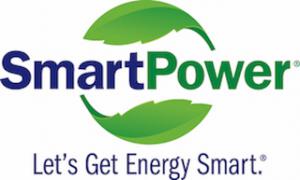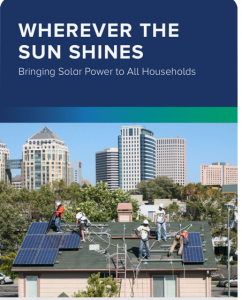SmartPower Joins Clean Tech Panel Discussion On Supporting Underserved Communities
SmartPower President Joins SMUD & CALSEED At CleanStart Monthly Meet-Up
WASHINGTON, D.C., UNITED STATES OF AMERICA, September 27, 2020 /EINPresswire.com/ -- SmartPower President Brian F. Keane will join clean tech leaders for a wide-ranging panel discussion on how to reach and encourage disadvantaged communities to embrace clean energy technologies -- especially solar power -- this Tuesday, September 29th at 5:30 PM.
The panel discussion will be hosted by Sacramento-based non-profit, CleanStart, and Keane's presentation will focus on SmartPower's recent and groundbreaking "Solarize" research with low-and-moderate-income (LMI) communities.
Solarize is a proven community-based outreach approach that brings together solar installers, environmental organizations, community-based volunteers, local officials, and residents to accelerate adoption of rooftop solar. SmartPower's Solarize campaigns have been proven to lead to an average 1,000-percent increase in local installations.
"But breaking through to low-and-moderate-income communities has been one of our long-term challenges and goals for the advocacy community,” said Brian F. Keane, President of SmartPower. “And I look forward to sharing this roadmap -- and our new guidebook -- with the participants at the CleanStart MeetUp."
Some of the key findings from the research include:
1. It is critical to assess and remove key barriers. A starting point is to make sure that the policy environment is conducive to LMI solar adoption. It is especially important to have financing options that are tailored to the needs of these customers. When capital is available, solar can be much more attractive and accessible to LMI households. Shared community solar options also hold great promise for LMI adoption of solar.
2. Solarize programs work in LMI communities. Households in these communities are open to the idea of installing solar, and peer-to-peer and neighbor-to-neighbor campaigns that encourage solar adoption can succeed. A major reason for this is that trust matters, so community volunteers and local “solar ambassadors” can be very influential.
3. Getting the word out is critical. In LMI communities, customers are equally likely to adopt solar as a result of either a community-based or individual-based message; The researchers find that messaging does not matter for the number of adoptions. This suggests simply that engaging in messaging at all is critical.
4. Messaging matters for who adopts. Households that install solar after receiving community-based messages are happier with their installations and are more likely to recommend solar to their friends and neighbors, even if the installations tend to be somewhat smaller and less financially lucrative to the household. So, if the goal is to deliver happy adopters who continue to tell their peers about solar, community-based messaging is the preferred approach for LMI communities.
The webinar will feature panelists with expertise in public policy, community organizing, and green tech start-up management to provide an in-depth analysis of how the benefits of the green economy can reach underserved communities. The other panelists include representatives from the Sacramento Municipal Utility District (SMUD) and the Greenlining Institute.
This event will take place on Tuesday, September 29th at 5:30 pm (eastern) – just mere weeks after fires in California broke the state record for acres of land burned. The webinar will be hosted over Zoom – RSVP Here
Lukas Lehmann
SmartPower
+1 703-650-7461
email us here
Legal Disclaimer:
EIN Presswire provides this news content "as is" without warranty of any kind. We do not accept any responsibility or liability for the accuracy, content, images, videos, licenses, completeness, legality, or reliability of the information contained in this article. If you have any complaints or copyright issues related to this article, kindly contact the author above.



